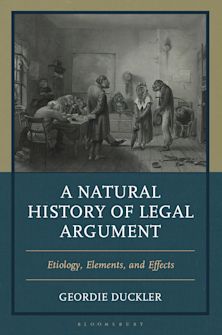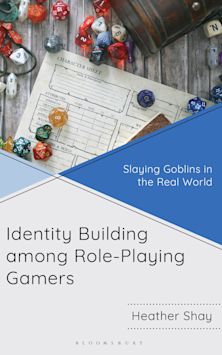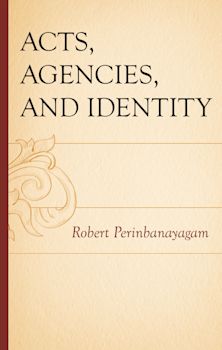- Home
- ACADEMIC
- Sociology
- Sociology - Other
- After Multiculturalism
This product is usually dispatched within 3 days
- Delivery and returns info
-
Free US delivery on orders $35 or over
You must sign in to add this item to your wishlist. Please sign in or create an account
Description
After Multiculturalism: The Discourse on Race and the Dialectics of Liberty provides a unique critique of multiculturalist thought in social theory and public policy from an individualist perspective. Contemporary academic and policy discourse on race and racism in the United States is dominated by collectivist social theories that are founded on the idea that the only meaningful challenges to racism are those that foster collective social identities and seek to influence and direct the use of state power in the interest of particular racial and ethnic groups. Multiculturalism is the prevailing incarnation of anti-racist thought that informs and mediates political process and organizational life in the United States. The multicultural discourse on race has become tribalist, anti-western, anti-market, and statist. After Multiculturalism challenges the notion that collectivist and statist ideologies 'own' racism as an educational and public policy issue. Welsh demonstrates that individualist philosophies entail critiques of racism that follow directly from their anti-collectivist and anti-statist foundations. He argues that multiculturalism is unlikely to promote the types of social action and changes essential to overcoming racism and that the individualist and libertarian ideas discussed in the book make important contributions toward the realization of a world free of racial domination. To this end, the ideas of Ayn Rand, Murray Rothbard, Benjamin, Benjamin Tucker, Lysander Spooner, Max Stirner and contemporary libertarian scholars are discussed to the lay the foundation for a critique of multiculturalism. The book explores the concepts of post-ethnicity and transracialism as individualist and libertarian expressions of a society 'after multiculturalism.' Welsh's discussions of transracialism and post-ethnicity constitute unique and important contributions to social thought. This book will hold great interest for scholars and students concerned with race, ethnicity, political theory, or individualist thought, as well as scholars and students of the history of ideas.
Table of Contents
Chapter 2. Against the Predatory State and the Mystique of Race: The Objectivist Vision of Ayn Rand
Chapter 3. Fusion and Transcendence: Murray Rothbard and the Anarcho-Capitalist Critique of Reason
Chapter 4. The Old Racism and the New: The Libertarian Analysis and Critique of State Intervention in Society
Chapter 5. Our Enemies, Racism and the State: Individualist Anarchism and the Struggle Against Slavery and Racial Violence
Chapter 6. Self-Ownership, the Unique Individual, and the Spectre of Race: The Dialectical Egoism of Max Stirner
Chapter 7 After Multiculturalism: The Logic of Diversity and the Dialectics of Liberty
Product details
| Published | Nov 03 2007 |
|---|---|
| Format | Paperback |
| Edition | 1st |
| Extent | 222 |
| ISBN | 9780739118832 |
| Imprint | Lexington Books |
| Dimensions | 9 x 6 inches |
| Series | After the Empire: The Francophone World and Postcolonial France |
| Publisher | Bloomsbury Publishing |
About the contributors
Reviews
-
John F. Welsh provides a comprehensive survey of libertarian and individualist thought on race and multiculturalism. Examining such thinkers as Ayn Rand, Murray Rothbard, Lysander Spooner, Albert Jay Nock, and Max Stirner, Welsh's provocative book demonstrates the analytical power of dialectical-libertarian perspectives. Exploring multiple, interconnected theoretical levels, Welsh offers a fundamentally radical critique of racism in all its guises, while challenging current models of thinking on this volatile subject. This is truly a much-needed addition to the growing scholarly literature
Chris Matthew Sciabarra, author of Ayn Rand: The Russian Radical
-
This book highlights individualist and libertarian ideas that contribute toward the realization of a society free from racial domination....An important addition to race, ethnicity, public policy, and multiculturalism literature. Highly recommended.
Choice Reviews
-
After Multiculturalism is a very significant contribution to the discourse on race and multiculturalism. This book provides a "third dimension" to what has become a two-sided debate over race and multiculturalism in the United States. Welsh draws on a diverse range of individualist and libertarian perspectives in building a theoretical framework that critiques the logic of diversity guiding multicultural thought while simultaneously laying the foundations for a dialectical libertarian analysis of racism, which holds the possibility of overcoming the violence and inequalities that result from it.After Multiculturalism is an outstanding piece of scholarship, it transcends the political categories of "right" and "left" and offers a critique that will receive serious attention from scholars on the "multicultural left" as well as their rightist critics.
E. Wayne Ross, University of British Columbia



































